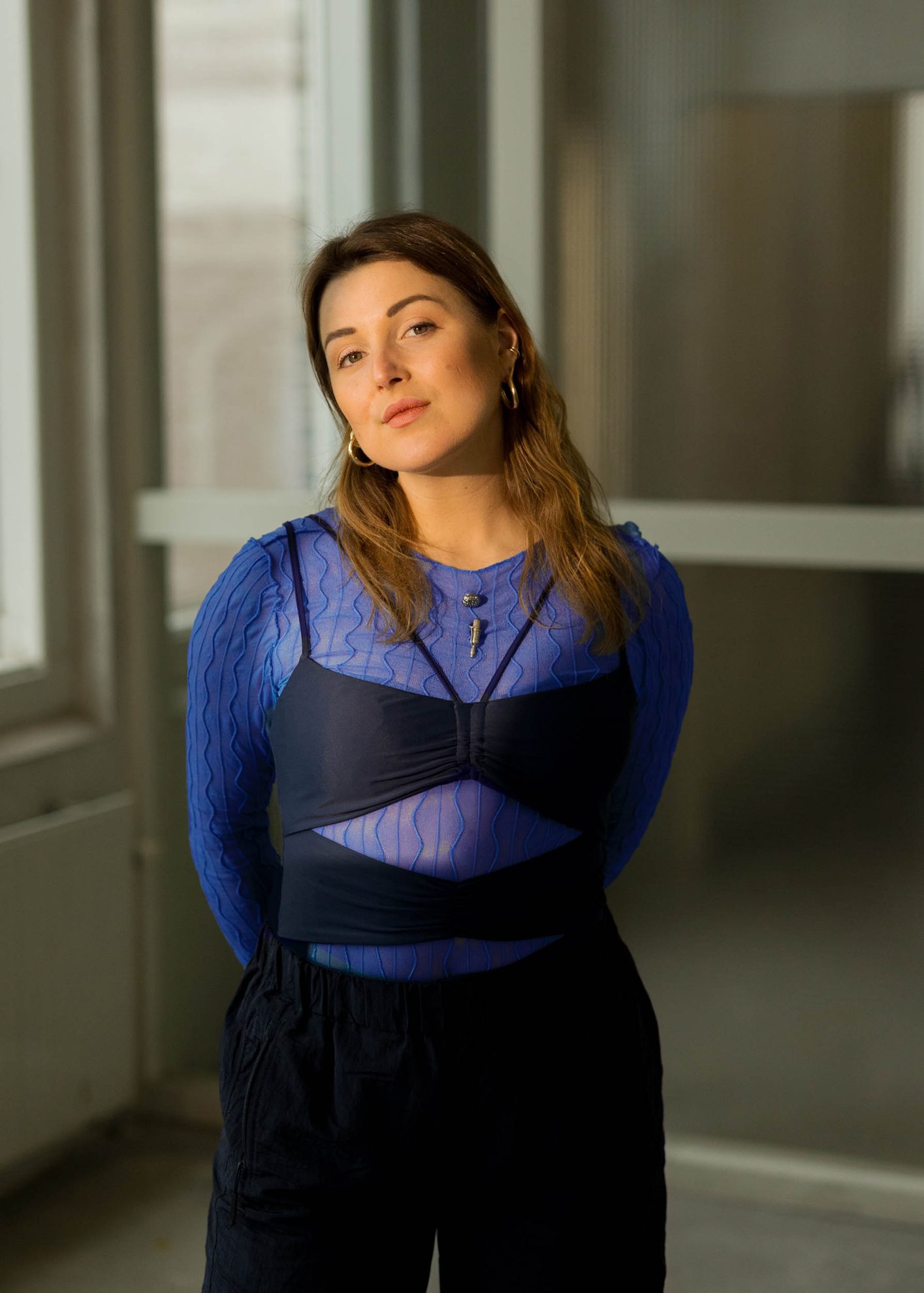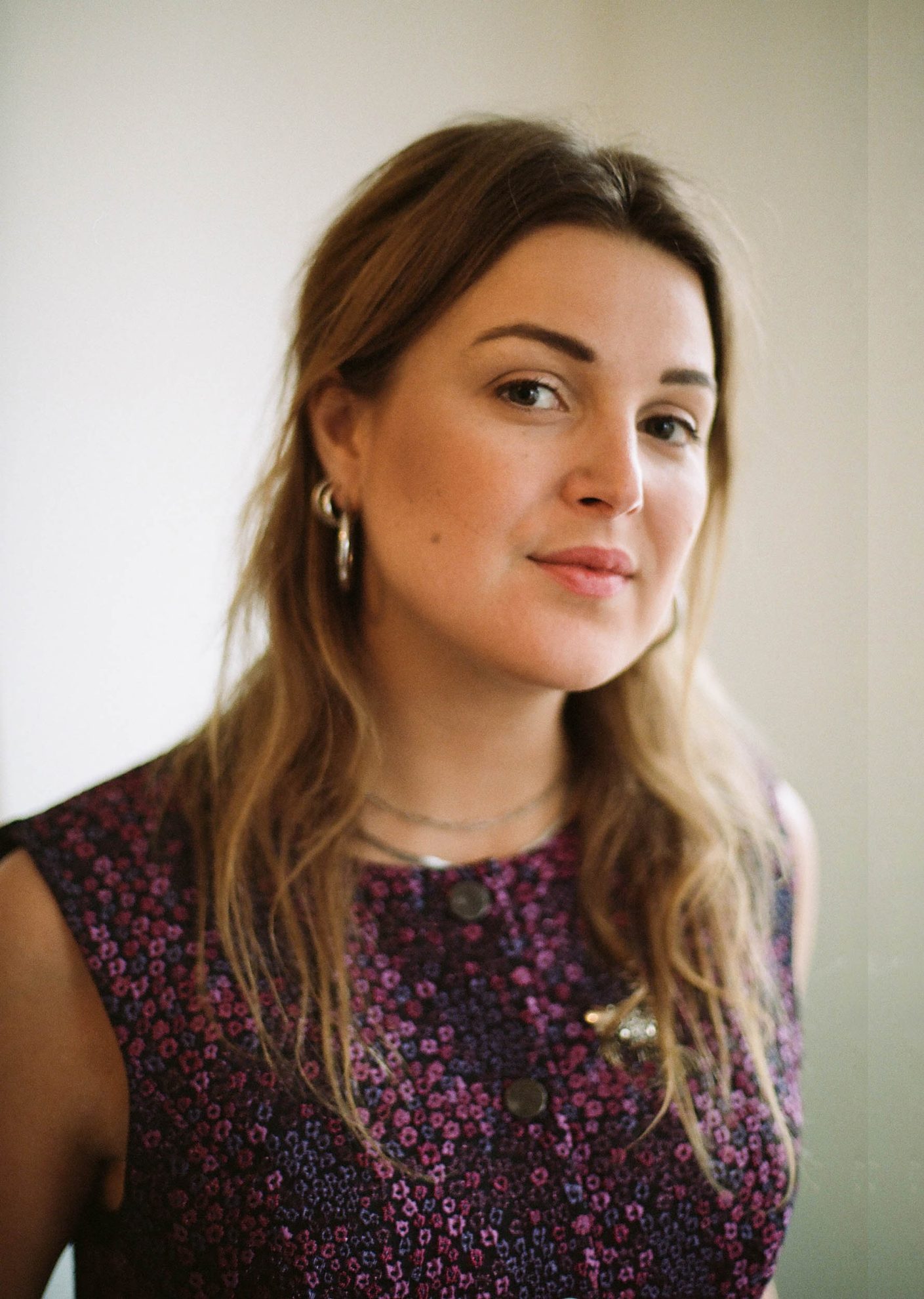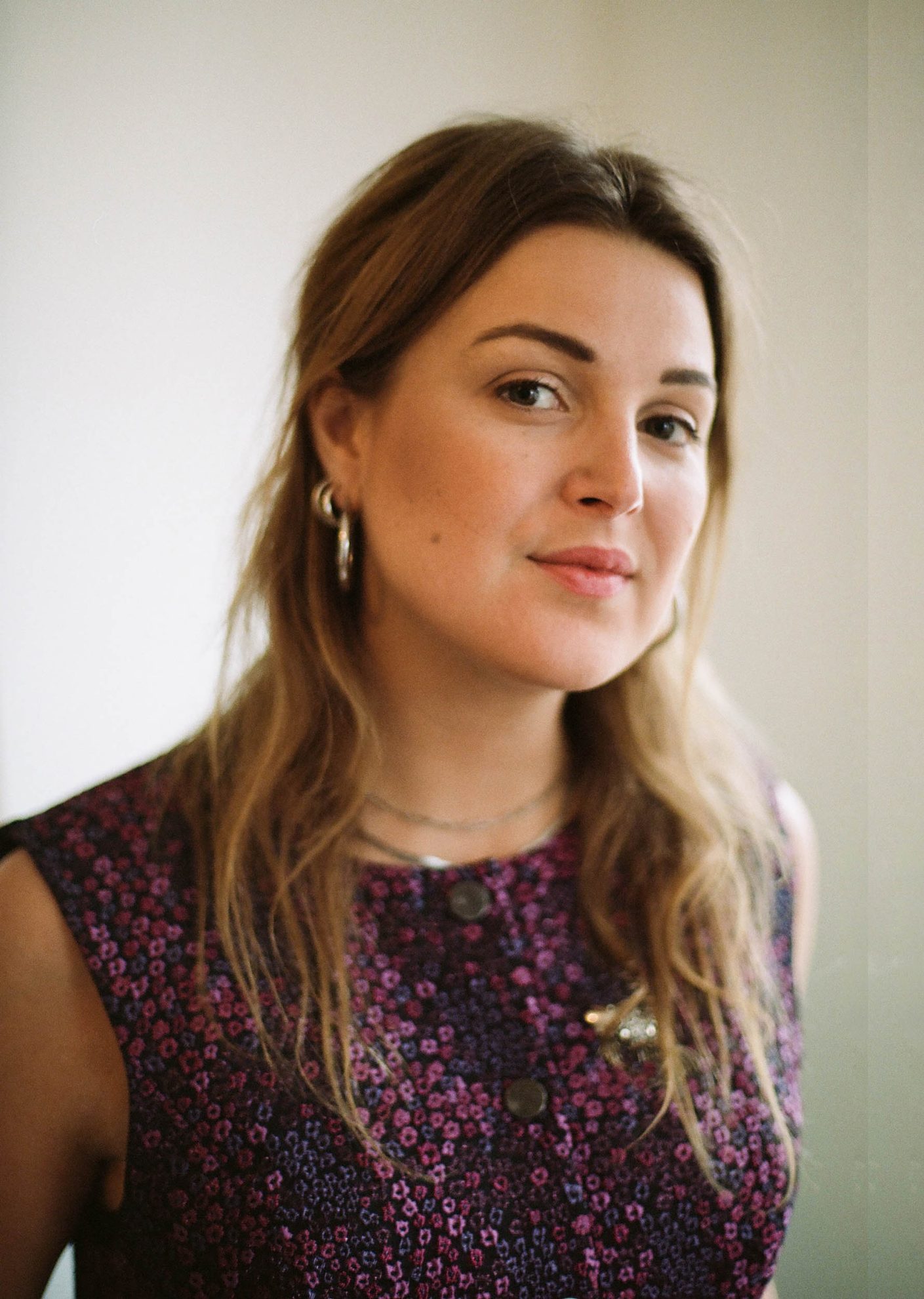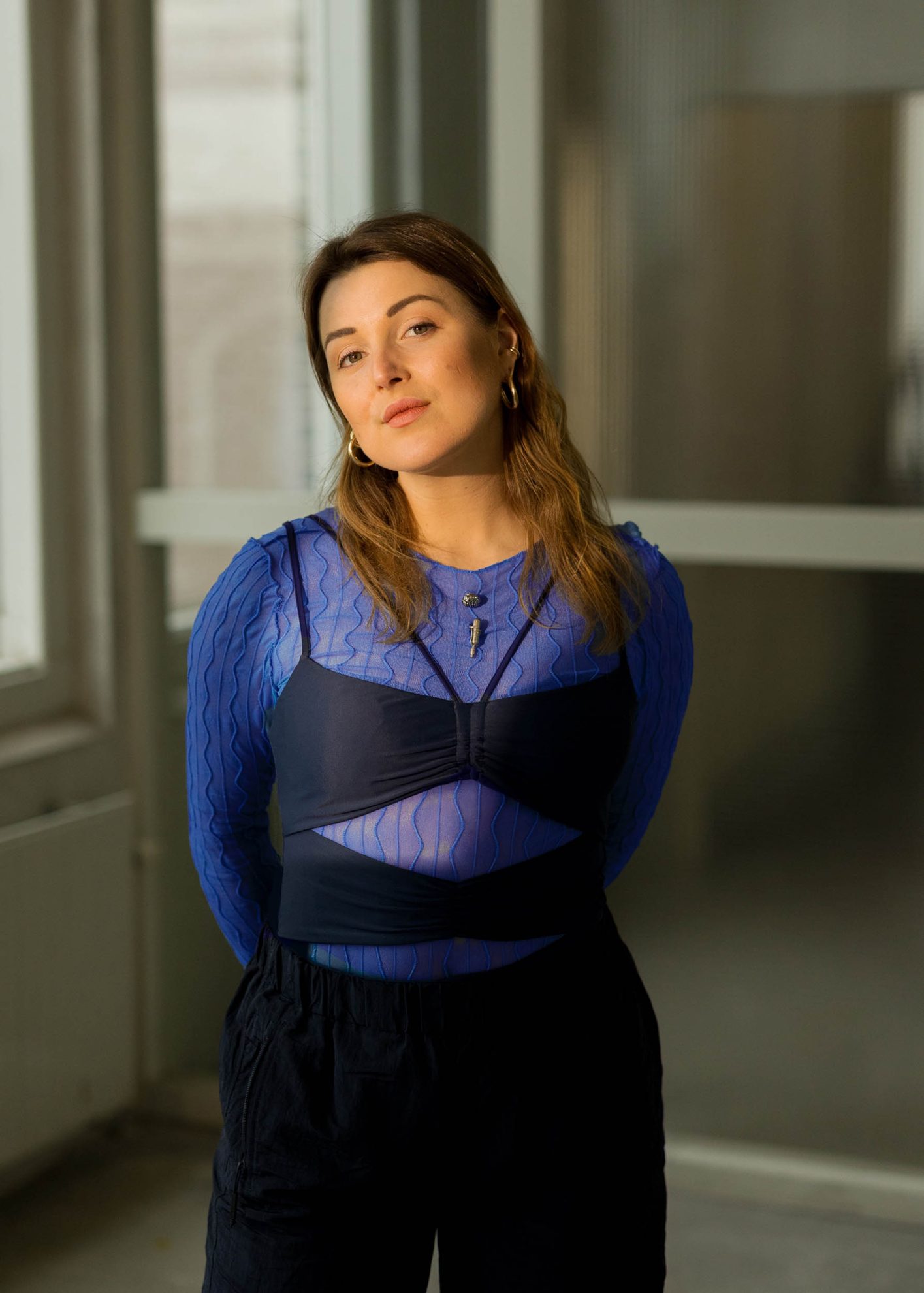

Portrait in blue by Maarten Delobel, Portrait in purple by Jonna Bruinsma
Janssen studied Graphic Design at the ArtEZ Institute of the Arts in Arnhem (’12-’16). Her projects were mainly socially and politically engaged and she created her designs based on research and mathematics. Her interest in our relationship with technology grew and resulted in several projects researching digital identity, terms and conditions and Internet standards. For her graduation project, Janssen took a deep dive into Big Tech business models and stated, “The data business has enslaved us.” With the project Bank of Online Humanity (2016), she showed people the value of their personal data.
It was a time before all big scandals, whistleblowers and law enforcement. Nobody really cared about data and how big tech was making tons of money by monetizing attention and exploiting people’s behavior. It was not given to take a stand for digital civic rights and criticize our beloved technologies – especially as a young, female artist. This and the zeitgeist at that moment felt like a pushback but over time it became a strength. Her motivation and mission gained ground when winning the Crypto Design Award with Bank of Online Humanity in November 2016. Followed by receiving the prestigious Grant for Talent Development from Creative Fund NL and a Pioneer Grant from the SIDN Fund for Innovation and Internet. What started as a project grew into a vision and she decided to dedicate her practice to fight these (power) inequalities, create awareness for data protection and the implications of algorithmic decision making – and make the internet a better place.
From there, she started building the foundations for her knowledge and network. Reading books, academic papers, regulations and legislations and she contacted many highly renowned experts in the field to pick their brains and dig deeper. Starting to untangle the complexity of the Internet infrastructure and why her concerns that ‘something is really off’ were right. Janssen developed her own research method to structure her observations, thoughts and inspiration. She naturally connects and dissects different theories, directing her to the core of what challenges we are facing in the digitalization of our world.
Over the years, she developed many self-initiated research and art projects and travelled all around the country and abroad to exhibit her work at a variety of events and places, such as Architecture Biennial Venice, Lowlands Festival, Masterly Milan, Dutch Design Week, the Social Economic Council and the Dutch Data Protection Authority. Occasionally, she works on commission or in collaboration with parties in line with her mission and ideologies.
Her practice grew beyond being an artist and data nerd. Janssen developed herself into a spokesperson for data protection and digital rights. Creating art installations, giving lectures, participating in panels, hosting podcasts, telling her story on television, radio and podcast shows, in magazines and making it to the cover of The Netherlands’ premier intellectual magazine Vrij Nederland. Her art is the cornerstone and from there, she builds conversations and advocates for digital civic rights and data sovereignty. Pushing the boundaries of art and design, debating with lawyers, challenging data professionals, confronting authorities, and encouraging politicians to take a stand for a better, fairer, safer, more inclusive, fair, open and democratic digital future.

